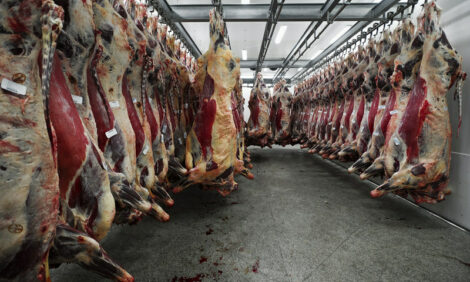



Call for Greater Controls on Imported Livestock
UK - JAB - the Jont Campaign Against Bluetongue - has welcomed the announcement by the European Commission that Great Britain’s bluetongue status will be reclassified from a BTV8 protection zone to a Lower Risk Zone (LRZ) for BTV8.JAB feels that the new classification will go a long way to help keep Great Britain free of bluetongue as all animals will now have to meet tighter criteria before importation.
The move by the European Commission, which comes into effect on June 12, means tougher controls on animals being brought into Great Britain from countries affected by bluetongue.
New rules mean that any bluetongue susceptible animals being brought in from other countries affected by BTV8 will have to meet more stringent vaccination conditions before importation.
These extra conditions will result in animals either having to be vaccinated plus a 60 day wait, vaccinated plus a test 14 days after the onset of immunity or a booster vaccination within time period of immunity.
Pregnant animals will also have needed to meet vaccination conditions before insemination or mating. Critically, the change in status does not affect the ability of keepers in GB to vaccinate their stock. JAB says livestock keepers will benefit greatly from the decision, providing greater protection from imports, while vaccination can continue as normal and exports will remain, virtually, unaffected.
JAB spokesman John Mercer said: “This move to a lower risk zone imposes tighter controls on animals brought into the country from BTV8 protection zones and will help keep disease out. This is absolutely crucial as it ensures that bluetongue will not return to this country through animal moves from those areas and in turn hamper our chances of eventually moving to freedom.
“There are two main ways bluetongue will enter Great Britain, either through wind-borne incursion of infected midges or through imported animals. While we are limited in our ability to control the wind-borne threat we are able to reduce the risk of incursion via imported stock. We have seen imports levels rise dramatically in the last six months and this move to tighten up controls is vital in protecting the livestock sector and will hopefully help us one day meet our aim of gaining disease free status.
“As part of the approval process DEFRA will have to carry out monthly surveillance and take blood samples from stock across the South of England and JAB are encouraging livestock keepers to fully co-operate with Animal Health should they be asked to participate in the sampling programme.
“Although this is excellent news, we must not become complacent. Livestock keepers should continue to source responsibly and check the health and vaccination status of their stock.
“Bluetongue is still circulating on the continent and there is a possibility that it may blow across to Great Britain as it did in 2007 and therefore it cannot be stressed enough that vaccination remains the only effective way to protect against bluetongue. It is vital livestock keepers continue to vaccinate their animals. I would also urge farmers to remain vigilant for signs of the disease and report any suspicions immediately to the local Animal Health Office.”
Jim Paice, Minister for Agriculture and Food said: "This is a great result that speaks volumes for the work done by farmers and vets, who’ve worked with the Government to achieve this Lower Risk Zone status for bluetongue. It will help protect our livestock producers but they must remain vigilant and anyone importing stock must make sure that they meet the new requirements for importation."
Nigel Gibbens the chief veterinary officcer said: "The news from SCoFCAH that Great Britain has achieved Lower Risk Zone status is testament to the excellent cooperation between industry and government demonstrated from the earliest days of 2007’s bluetongue outbreak.
"We have remained in a bluetongue Protection Zone since the first case was confirmed and the efforts of responsible livestock owners and vets in vaccinating stock and the surveillance work by Animal Health, the Veterinary Laboratories Agency, and the Institute for Animal Health has allowed us to successfully apply for this revised status.
"But we cannot become complacent, and I’d encourage farmers and vets to continue to vaccinate their livestock and remain vigilant for disease while additional targeted surveillance continues in the higher risk areas."
TheCattleSite News Desk


